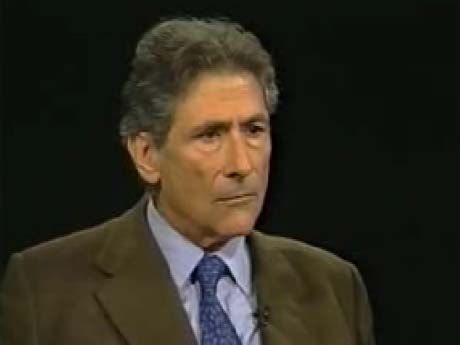“When we refer to a subject, place or person in the phrase ‘the question of’, we imply a number of different things. For example, one concludes a survey of current affairs by saying, ‘And now I come to the question of X.’ The point here is that X is a matter apart from all all the others, and must be dealt with apart. Secondly, ‘the question of’ is used to refer to some long-standing, particularly intractable and insistent problem: the question of rights, the Eastern question, the question of free speech. Thirdly, and most uncommonly, ‘the question of’ can be used in such a way as to suggest that the status of the thing referred to in the phrase is uncertain, questionable, unstable: the question of the existence of a Loch Ness monster, for example. The use of ‘the question of’ in connection with Palestine implies all three types of meaning. Like the Orient of which it is a part, Palestine exists in another world from the habitual Atlantic one. Palestine is also in some way what the most thorny international problem of postwar life is all about: the struggle over, for, and in Palestine, which has absorbed the energies of more people than any other for a comparable period of time. Finally, Palestine itself is a much debated, even contested, notion. The very mention of the name on the one hand constitutes for the Palestinian and his partisans an act of important and positive political assertion, and on the other, for the Palestinian’s enemies it is an act of equally assertive but much more negative and threatening denial. We need only recall here that demonstrations on the streets of major American cosmopolitan centers during the late sixties and much of the seventies were led by factions saying either ‘Palestine is‘ or ‘There is no Palestine’. In Israel today it is the custom officially to refer to the Palestinians as ‘so-called Palestinians’, which is a somewhat gentler phrase than Golda Meir’s flat assertion that Palestinians did not exist.
“The fact of the matter is that today Palestine does not exist, except as a memory, or, more importantly, as an idea, a political and human experience, and an act of sustained popular will. My subject will be all those things about Palestine, although I will not for a moment pretend that Palestine, for anyone now living and writing in the West, is not ‘the question of’. Yet even to admit that is already to venture into a relatively unfamiliar field. For too many people who read the press, who watch television and listen to the radio, who pretend to more than a smattering of political knowledge, the Middle East is essentially the Arab-Israeli conflict (dispute, problem, struggle, etc.) and little more. There is a considerable reductiveness in this view, of course, but what is really wrong with it is that most of the time it literally blocks Palestine from having anything to do with the Middle East of today. A considerable majority of the literature on the Middle East, gives the impression that the essence of what goes on in the Middle East is a series of unending wars between a group of Arab countries and Israel. That there had been such an entity as Palestine until 1948, or that Israel’s existence — its ‘independence’, as the phrase goes – was the result of the eradication of Palestine: of these truths beyond dispute most people who follow events in the Middle East are more or less ignorant, or unaware. But what is most important is the continuing avoidance or ignorance today of about four million Muslim and Christian Arabs who are known to themselves and others as Palestinians. They make up the question of Palestine, and if there is no country called Palestine it is not because there are no Palestinians. There are.
“The Palestinian people today constitutes a nation in exile, and is not a random collection of individuals. Anyone who knows the least bit about this people knows, too, the profound existential ties that bind it together, and that connect it historically, culturally and politically to the land of Palestine. For too many years, the official policies of Israel and the United States, quite unlike the attitudes of the rest of the world, assumed that Palestinians would fade into the Arab world, that Jordan would become Palestine, that Palestinians would accept permanent subservience under a Bantustan-like ‘limited autonomy’ (or as the Likud formula has it, autonomy for people, not for land), that the people may even be willing to perform an act of collective politicide on itself and declare itself null and void. That is to fail completely, in moral and psychological terms, to grasp the reality. Nothing less than Palestinian self-determination will do; and only that will ever defuse the already far too explosive Middle East. Yet some Israelis and non-Israeli Jews have in fact understood that if Israelis and Palestinians can have any decent future it must be a common one, not based on the nullification of one by the other. We Palestinians as a people took a giant step towards reconciliation and peace. We now await a corresponding gesture from the Israeli people and its government.”
(Edward Said, The Question of Palestine)

